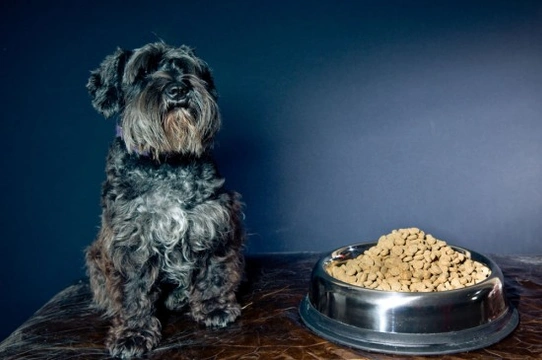
Why Isn’t My Dog Eating? 8 Common Causes Explained
Dogs are usually hearty eaters and are often famous for their love of food, sometimes taking this to extremes with begging, scavenging and overeating behaviour as well. While these problems can cause their own challenges, the opposite problem, where a dog refuses or is unwilling to eat, can be just as worrying for owners.
Throughout their lives, many dogs experience occasional loss of appetite, which often resolves quickly and without concern. However, persistent refusal to eat, or a sudden loss of interest in food, warrants closer attention and possibly veterinary advice.
In this article, we explore eight common reasons why your dog might not be eating, along with guidance on how to address each issue responsibly.
1. Disliking the Food Offered
It may seem surprising that a dog who eagerly scavenges or eats unpleasant items might be fussy about their actual meals. Disliking the food offered is one of the simplest, yet most frequent, reasons for a dog’s inappetence. If you have recently switched your dog's food, this could be the cause.
Interestingly, dogs sometimes reject better quality foods if they are transitioning from cheaper brands, which often contain more sugar, salt and artificial additives that appeal strongly to their taste buds. To avoid this, transition your dog gradually to a new diet, mixing increasing amounts over several days.
2. Feeding Too Much
Overfeeding is commonly overlooked but can reduce a dog’s appetite, especially as they age or become less active. If your dog consistently leaves food uneaten, you might be offering portions larger than necessary.
Refer to feeding guidelines provided by pet food manufacturers and adjust portions to your dog's current activity level and weight to avoid unnecessary leftovers and maintain healthy body condition.
3. Scavenging or Receiving Food Elsewhere
Some dogs are skilled scavengers and may consume treats or discarded food while out on walks, leading to reduced interest in their regular meals. Additionally, if your dog is a habitual beggar and spends time in your garden or outdoors, neighbours or local children might be feeding them extra snacks unnoticed.
Monitor your dog’s environment for unauthorized feeding and try to minimise opportunities for scavenging to maintain a balanced diet.
4. Too Many Treats
While treats are valuable rewards during training and can contribute to enrichment, excessive supplementation with treats or table scraps can reduce a dog’s hunger for their normal meals. Consistent over-treating risks nutritional imbalance and obesity.
Limit treats to a small percentage of daily caloric intake, using them strategically during training sessions or as occasional rewards, rather than as meal replacements.
5. Dental Problems
Dental health issues are a common and sometimes underestimated cause of a dog’s reluctance to eat. Bad breath is often mistaken as normal, but it may indicate problems such as periodontal disease, gum inflammation, abscesses, or damaged teeth causing pain while eating.
If you notice persistent bad breath, difficulty chewing, drooling, or pawing at the mouth, seek a veterinary dental examination promptly. Early intervention can prevent pain and improve your dog’s appetite and quality of life.
6. Stress and Environmental Factors
A dog’s mealtime experience can be affected by stress or the environment. Issues such as an uncomfortable bowl location, interruptions, competition or bullying from other pets, or general anxiety can cause reluctance to eat.
Observe your dog’s behaviour during feeding, provide a quiet and safe area for meals, and try to identify and address any sources of stress. Reducing anxiety not only improves appetite but also overall wellbeing.
7. Illness
Illness is a significant cause of loss of appetite in dogs. Infectious diseases, organ dysfunction (kidney, liver), cancers, infections or gastrointestinal conditions may manifest initially as inappetence before other symptoms appear.
If your dog suddenly refuses food and displays additional signs such as vomiting, diarrhoea, lethargy, or changes in behaviour, arrange a veterinary examination promptly. Early diagnosis and treatment are essential for best outcomes.
8. After Veterinary Treatment or Vaccinations
Dogs recovering from surgery or veterinary treatments may experience reduced appetite temporarily, often due to the effects of anaesthesia or medication. Similarly, vaccinations, including annual boosters, can cause mild lethargy and decreased interest in food for a day or two, which is normal.
Communicate openly with your vet about what to expect during your dog’s recovery or after vaccinations, and seek advice if appetite does not improve or other symptoms develop.
By understanding these common reasons for a dog’s sudden or ongoing refusal to eat, you as a responsible owner can take informed steps towards recovery or seek timely veterinary assistance to ensure your dog’s health and happiness.
If you’re considering finding a puppy or looking for reputable breeders, ensure you choose sources that prioritise health and welfare for the best start in life.



